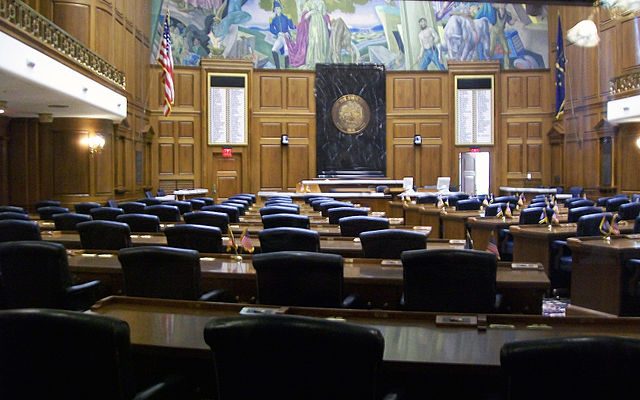The casino industry of Indiana has been suffering for more than a decade and lawmakers of the state have been trying for some time to keep the struggling casino industry afloat. Tax revenues are declining and investments are lacking, so legislators need something to change in order for the gaming industry to move away from this long-running downturn.
The $2.2 billion industry has suffered over the past ten years due to competition from neighboring states, with the state’s 13 casinos bringing in only $600 million in tax revenues last year, a decline of 30% since 2007. Admissions to casinos are down 40% since 2007, with 16.7 million individuals visiting the casinos of the state in 2016.
Lawmakers must try to find a solution that will keep casino operators happy as well as bring in as much revenue to the state and local governments as possible. A bill has been making the route through Legislature, House Bill 1350, that has already seen several changes along the way and shows the tension in the state in regards to the gaming industry.
The bill would do away with an admissions tax of $3 per person that is set for the riverboats of the state and replace this tax with a supplemental tax that would be capped at 3.5% percent on the gross revenues of the casino. Experts believe that the tax is an outdated option.
In today’s society, casino visitors will go from their hotel room to the casino quite frequently, so the casinos will be paying a tax several times for the same individual to visit the venue several times in one day. According to a report by The Republic, Senate Appropriations Chairman Luck Kenley has stated that proponents of the admissions tax change have been able to make a fairly good case on their behalf. But other aspects of the bill might be changed.
One example of a change in the measure would be the proposed phase-out of what is being called an ‘add-back tax’ for gaming venues. Currently, casinos play a tax on every dollar of revenue they earn to the state. This includes money that is used to pay for other taxes. This tax is a huge drawback for anyone who might want to invest but eliminating the tax would reduce the amount of money the state earns by $10 million in just a year’s time.
The bill also would have reduced the monetary contributions that local municipalities receive from the state with the ‘hold-harmless’ distributions that are tied to gambling revenues. This would be a change to $40 million by the year 2020, from $48 million as it is today.
The House held a vote and decided to study the issue over the summer. Representative Todd Huston, the author of the bill, has stated that his goal is to be able to attract more casino business. The state needs to make sure the operators of casino gaming are able to be competitive against other states where they could be making investments.


